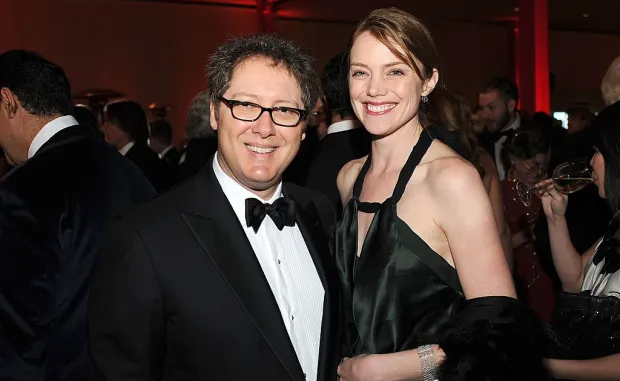
Spader on Family: Unpacking His Thoughts on Having More Children
James Spader. The name conjures images of enigmatic characters, from the preppy villain in “Pretty in Pink” to the captivatingly criminal Raymond Reddington in “The Blacklist.” But beyond the screen, Spader is a father of three sons. While many celebrities expand their families over the years, Spader has been quite open about his decision not to have more children. His reasoning? It’s not your typical Hollywood answer, and it offers a fascinating glimpse into his unique perspective on life, family, and the world around us.
A Look at Spader’s Existing Family: Three Sons and a Deep Connection
Spader is the proud father of three sons: Sebastian Spader (born in 1989) and Elijah Spader (born in 1992) from his marriage to Victoria Kheel, and Nathaneal Spader (born in 2008) with his current partner, actress Leslie Stefanson. By all accounts, Spader is a dedicated father who values his relationships with his children. He’s spoken about their interests and milestones with a genuine warmth that contrasts with some of the darker characters he often portrays.
His Children: Sebastian, Elijah, and Nathaneal
Each of Spader’s sons has grown into their own individual. Sebastian has followed in his father’s footsteps to some extent, having worked in the entertainment industry. Elijah has also shown creative inclinations, attending film school. Nathaneal, being the youngest, is likely still forging his own path, but Spader has spoken of the joys of fatherhood at different stages of his life.
Spader’s Approach to Fatherhood: Balancing Work and Family
Like many working parents, Spader has navigated the challenges of balancing a demanding career with family life. While he maintains a degree of privacy around his personal life, interviews suggest a commitment to being present for his children, even amidst a busy filming schedule. It’s a testament to the dedication many actors have to their families behind the glitz and glamour.
The Dynamic of a Multi-Generational Family
Having children across different decades offers a unique family dynamic. Spader has experienced fatherhood in his late twenties, thirties, and late forties, bringing different perspectives and experiences to each stage. This multi-generational aspect likely shapes his views on family size and the future.
The Decisive Statement: Spader’s Reasoning for Not Expanding His Family
In a candid interview with Rolling Stone back in 2014, Spader revealed his reasoning for not wanting more children, and it was surprisingly grounded in his concerns about the planet’s population. He stated, “I believe in a negative population growth. The other two were with another mother, so we have three boys that will replace all three of us.” 1 This wasn’t a flippant remark; it stemmed from a deeper conviction about the sustainability of the planet.
A Belief in Negative Population Growth: Prioritizing Sustainability
Spader’s stance reflects a growing awareness of environmental concerns and the impact of population growth on the Earth’s resources. His belief in negative population growth suggests a desire for a future where humanity’s footprint on the planet is reduced. It’s a perspective that moves beyond personal desires and considers the larger global context.
The “Replacement” Theory: Three Sons for Three Adults
His statement about his three sons “replacing all three of us” is a straightforward, albeit somewhat unconventional, way of looking at family size in relation to population. It suggests a sense of responsibility towards not contributing to overpopulation, with his existing children maintaining the current family number across generations.
A Departure from Typical Celebrity Family Narratives
In a world where many celebrities have large families, Spader’s reasoning stands out. It’s a pragmatic and environmentally conscious perspective that prioritizes global well-being over the societal norm of continually expanding one’s lineage. This makes his stance all the more intriguing and thought-provoking.
Environmental Consciousness in Hollywood: A Growing Trend?
While Spader’s direct statement about population might be unique, a broader awareness of environmental issues is certainly present in Hollywood. Many celebrities advocate for sustainable practices, support environmental organizations, and use their platform to raise awareness about climate change and conservation.

Celebrities Advocating for Environmental Causes
From Leonardo DiCaprio’s long-standing environmental activism to Jane Fonda’s passionate advocacy against climate change, many prominent figures in Hollywood are vocal about environmental concerns. Their efforts range from supporting specific initiatives to using their influence to promote broader awareness.
The Shift Towards Sustainable Practices in the Entertainment Industry
The entertainment industry itself is gradually moving towards more sustainable practices, with initiatives focused on reducing carbon footprints on film sets, promoting eco-friendly production methods, and using their storytelling to address environmental themes.
Spader’s Perspective: A More Direct Focus on Population
While others might focus on consumption patterns or renewable energy, Spader’s perspective brings the often-taboo topic of population growth into the conversation. It’s a more direct and perhaps more challenging aspect of environmental sustainability to address publicly.
The Impact of Personal Beliefs on Family Decisions: Beyond Societal Norms
Spader’s decision highlights how personal beliefs and values can significantly influence family planning, often overriding societal expectations or the desire to have a large family. His reasoning is deeply rooted in his concern for the planet’s future, a powerful motivator that shapes his personal choices.
Prioritizing Personal Values in Family Planning
For many individuals, decisions about family size are deeply personal, influenced by a range of factors including financial stability, personal desires, and deeply held values. Spader’s case underscores the significance of these personal values, even when they diverge from common societal norms.
The Influence of Global Concerns on Individual Choices
In an increasingly interconnected world, global concerns like climate change and population growth are beginning to influence individual choices in more profound ways. Spader’s decision reflects this growing awareness and a sense of responsibility towards the planet’s future.
Challenging Traditional Notions of Family Expansion
Spader’s perspective challenges the traditional notion that having more children is always a positive or expected outcome. He presents an alternative viewpoint that considers the broader environmental impact and suggests a more sustainable approach to family size.
Spader’s Enigmatic Persona: Does His Reasoning Align?
James Spader has cultivated an enigmatic persona throughout his career, often playing characters with complex and sometimes unconventional motivations. His reasoning for not having more children, while grounded in a real-world concern, does align with this image of an individual who thinks outside the box and isn’t afraid to express unconventional views.
Unconventional Thinking: A Hallmark of His Public Image
Spader has often come across as someone who doesn’t necessarily follow the typical Hollywood script, both in his career choices and his personal life. His thoughtful and somewhat contrarian view on population growth fits this established image.
A Private Life with Publicly Expressed, Unique Beliefs
While Spader maintains a degree of privacy about his personal life, he hasn’t shied away from expressing his unique beliefs on certain topics, as evidenced by his candid interview about family size. This willingness to share his perspective, even if it’s not mainstream, is part of his intriguing public persona.
Connecting His On-Screen Roles with His Off-Screen Views
While it’s tempting to draw parallels between an actor’s on-screen roles and their off-screen views, Spader’s concern for the environment and his perspective on population seem to stem from a genuine personal conviction rather than an extension of any particular character he has played.
Conclusion:
James Spader’s reason for not wanting more children is far from the typical celebrity soundbite. His thoughtful and environmentally conscious perspective, rooted in a belief in negative population growth, offers a unique insight into his values and his view of the world. It’s a candid confession that challenges traditional notions of family expansion and highlights the growing awareness of global sustainability among individuals from all walks of life. Just as his on-screen characters captivate with their complexity, Spader’s off-screen reasoning for his family decisions is equally intriguing and thought-provoking.
FAQs:
- How many children does James Spader have? James Spader has three sons: Sebastian Spader, Elijah Spader, and Nathaneal Spader.
- What was James Spader’s reason for not wanting more children? Spader stated in an interview that he believes in negative population growth and feels that his three sons will “replace all three of us,” indicating a concern for environmental sustainability.
- Is James Spader known for being environmentally conscious? While he hasn’t been a vocal activist in the same way as some other celebrities, his statement about population growth reveals a personal concern for the planet’s well-being.
- How does Spader’s reasoning compare to typical celebrity family narratives? Spader’s focus on negative population growth as a reason for not having more children is a departure from the more common narrative of celebrities having large families.
- Where did James Spader share his thoughts on not having more children? He shared his perspective in a 2014 interview with Rolling Stone magazine.
